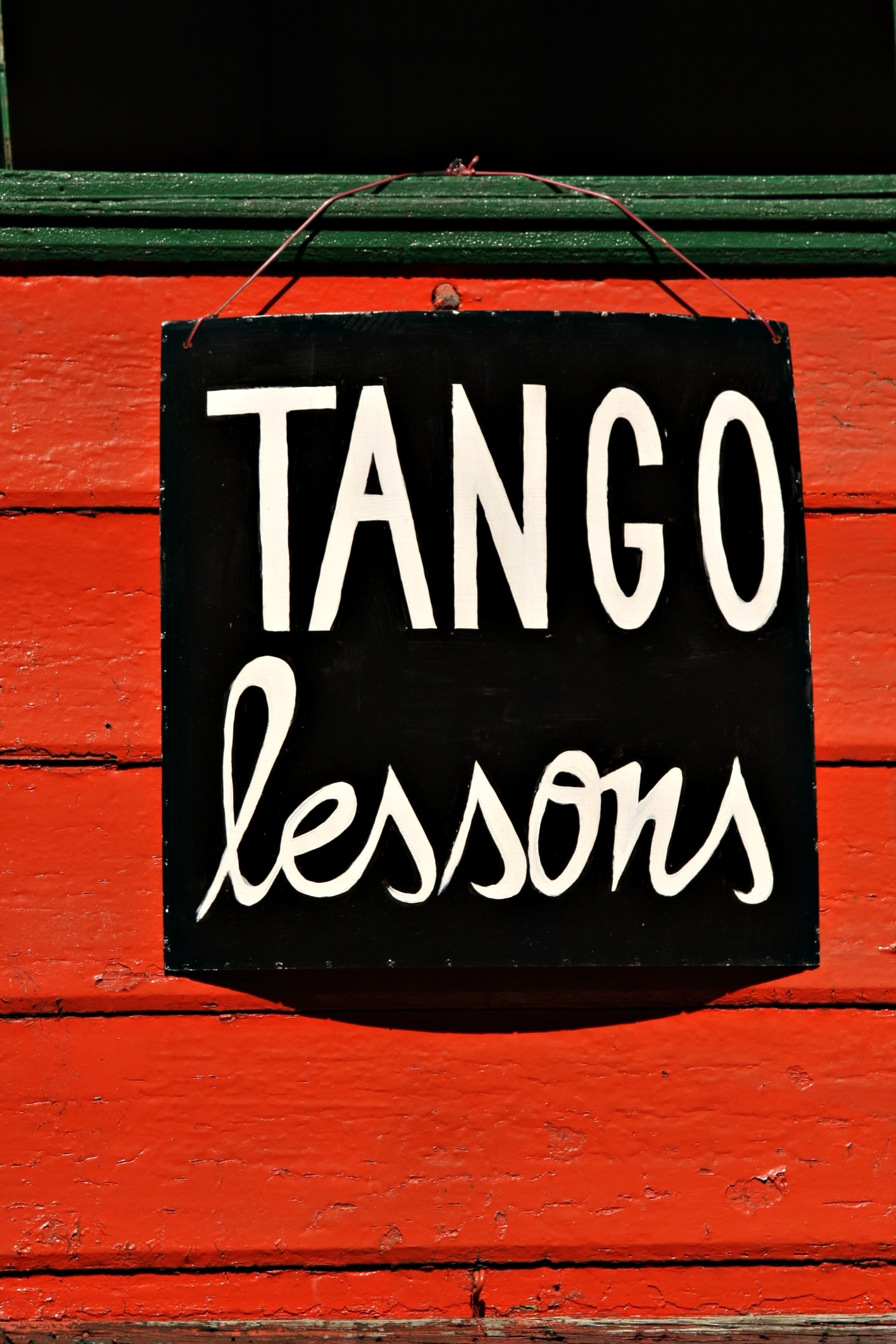Unlike the song “Que Sera Sera” the future is ours to see. Where there is a will, there is a way. By provoking the future, we can determine what will be.
Vitalia Consultants and Coaches have become “The New Provocateurs.” To be authentic and effective, we must be provocateurs. Why? Because most of our client-entrepreneurs went into business without a market-tested, battle-tested idea, product or service ~ with mind-blowing $ signs in their eyes, lost in wonderland without a clear and precise grasp of “how to manage the business of business.”
As an entrepreneur, a founder and owner of two successful businesses, I genuinely understand the dilemmas facing our clients. Being empathic doesn’t mean that client apathy or complacency is acceptable. Accepting the status-quo is unacceptable.
In reality, most of our entrepreneurial clients are ill-prepared for the business of business.  “Que Sera Sera” is the worst theme song (attitude) ever for entrepreneurs. Yet, most naive entrepreneurs sing it every business day + weekends and holidays!
“Que Sera Sera” is the worst theme song (attitude) ever for entrepreneurs. Yet, most naive entrepreneurs sing it every business day + weekends and holidays!
What’s the difference between dreamers and doers? Doers are dreamers with a plan. Obviously, when you don’t know where you are or where you’re going, you probably won’t get there.
Cheshire Cat: There you are!
Alice: Oh, no, no. I was just wondering if you could help me find my way.
Cheshire Cat: Well, that depends on where you want to get to.
Alice: Oh, it really doesn’t matter, as long as…
Cheshire Cat: Then, it really doesn’t matter which way you go.
from Alice In Wonderland
Consulting from the inside out, our client-projects mainly tend to be:
Business Growth Projects ~ Companies with a measure of sustained success and profitability over time, searching for ways to grow the business, moving from a developmental stage to a high growth stage, wanting to get from here to there. This usually entails building organizational capability, expanding leadership capacity, identifying emerging leaders, re-imagining brand management (communications and value) revitalizing talent and financial management. These C-Suite Executives are typically seasoned yet open-minded, willing to learn, and enlightened leaders.
Business Turnaround Projects ~ Companies whereby the probability of business failure is extremely high (due to gross mis-management) unless the C-Suite Executive Team makes immediate, decisive, dramatic behavioral changes. These companies are in dire straits, heavily in debt, often in the intensive care coma unit.
(Well-Funded) New Venture Start-Up Projects ~ Companies in the embryonic stages of development, creating a business mission, building an organizational vision and related capabilities, refining business, talent, and financial management tools. Taking their dream to the marketpace, these C-Suite Dreamers are committed to fulfilling their dream by living it.
Vitalia Consulting provides diagnostic tools and prescriptions to help C-Suite Executives sharpen their focus, achieve their personal and business goals, and increase the profitability of their companies.
We often care more about the business of business than our clients do. Our clients need us because they don’t understand the business of business. They hire us because (by doing what we do) we can help them get whatever they truly want from the business. There are plenty of clients who are oblivious to how the harsh realities of their business impact their quality of life.
Example: ($250M Software Company CEO) “God takes care of our business plan. I don’t have time for such things. My devotion is to my business, 80-90 hours a week. There are cameras everywhere here so that I can watch every aspect of my business because people are either lazy or thieves or both. I have never seen my daughter’s piano recitals or my son’s basketball games or gone on vacations with my wife and family, and I don’t ever intend to.”
Example: ($60M Chain of Auto Body Shops Owner) “2010 Hailstorms.” Answering the question, “When was your best year in sales? So that we can replicate it and use it as a stepping stone to greater profitability.”
Example: ($150M Home Improvement and Remodeling Company President, just before declaring bankruptcy) “We don’t need an organizational vision or strategies. People in this business come and go. We don’t worry about it. We don’t call them human resources.”
Example: (Health Services Non-Profit CEO and COO) “Marketing, sales, business development, and account management are the same thing, the same function.”
Example: ($600M High Tech Company CEO + other C-Suite Executives) “We understand that we’re in the technology space. All of the executives here have multiple degrees in engineering, etc. We know everything there is to know about this business. We don’t have time to think about a tax plan or tax strategies to increase our profitability. That’s what we pay our CPA Accountancy to do. We’ll have the company valuated when we sell it, merge or are acquired.”
These quotes would be funny if not so tragically true, especially for small ($15M+) to middle market ($600M+) companies, and we’re not talking about “Mom and Pop” businesses. Ever notice how more than 50% of the Inc. 500 “Top 500 Companies” disappear from the list year to year? The following facts are profound:
- 4 of 5 small to mid-size businesses are failing
- 81% fail within the first 5 years
- 94% of the remaining businesses fail within 10 years
- 69% are operating without a real business plan
- 84% with a real business plan don’t manage from it
- 85% are operating without a succession plan
- 89% don’t capitalize on tax planning using a board certified tax attorney/planner/strategist
- 90% have no exit plan strategies
- 96% don’t have their business valuated periodically (every two years)
- Entrepreneurs within these stats have among the highest rates of divorce, suicide, depression, alcoholism, heart attacks, and ulcers
- 70% of the entrepreneurs who somehow succeed end-up selling their companies for 60% below fair market value
- 87% do not act as the CEO (or a C-Suite Executive) instead act as an employee whereby the business eventually owns them (mind, body, and soul)
- Most entrepreneurs finance their own deals; borrow to fund debt; file for bankruptcy; and ultimately, lose everything.
Most of these entrepreneurs are candidates for “Business Turnaround Projects.”
~ Deuxieme Partie ~ (Part Two)
CNBC recently reported Business Owners Trying To Do It All: “The greatest mistake entrepreneurs make is to believe that they can do it all themselves. While entrepreneurs can do almost everything, they do almost everything poorly. Just like any other person, an entrepreneur has one or two natural talents. As an entrepreneur, it is your job to identify those talents and focus on them to the fullest. Surround yourself with people who are strong where you are weakest. Great companies are built on the foundation of exploiting a few strengths, not trying to be the masters of everything.”

While CNBC correctly describes the single greatest challenge of every entrepreneur, CNBC didn’t go far enough in setting forth the solution. The pragmatic solution to fixing the problem of “trying to do it all” is to re-organize the business with the right organizational structure with clear lines of authority, delegation of duties, methods of accountability, and the systems needed for greater controls. Optimize organizational and business performance with the right people, the right processes, the right tools ~ on the right road to recovery.
Accept it or not: In reality, our clients need our organizational leadership consulting and coaching help, not just from anybody, because we’re not like everybody else ~ because we can’t be like everybody else, and do our work effectively. Our mission as provocateurs is to positively affect change in the lives of our clients, and client companies, while delivering a significant 2:1 return on their investment.
Partner With Us.
Developing “Enlightened Leadership” is key to our success. In turn, we can help our clients get their real wants. What our clients want is a clear understanding of how to run the business by the numbers (not for the sake of compelling, colorful graphs and charts) so that they can have freedom and peace of mind.
Alice: I simply must get through!
Doorknob: Sorry, you’re much too big. Simply impassable.
Alice: You mean impossible.
Doorknob: No, impassable. Nothing’s impossible.
from Alice in Wonderland
We start with a “Business Insights Analysis®.” We show our clients the true business of business by looking inside the numbers, an in-depth look at the four components of every client-company:
- Sales
- Production
- Financial Management
- Talent Management (within the current Organizational Culture)
Often the Business Insights Analysis® findings become the catalyst for systemic changes, paving the way for revitalized vision, strategy, positioning, structure, financial management, policy, controls, process, reporting relationships, talent management, organizational culture, all requiring management and leadership behavioral changes.
To be provocateurs, we must be confident, bold, forthright, and assertive. Provoking is giving tough love, engaging the client with passionate (applied) intelligence. Our passion comes from knowing that no one says on their deathbed, “I wish that I had spent more time putting-out office fires.” Provoking is holding the client accountable. Provoking is never buying the client’s excuse for procrastination. Time is of the essence. Provoking is never putting the client at risk by accepting “let me think about it. Time waits for no one.
Freedom lies in being bold. ~Robert Frost
Enlightened Leaders understand that the future cannot be created by holding onto the past. Unlike the song “Que Sera Sera” the future is ours to see, the  future is there for our entrepreneurial clients to create. The client must have a passionate desire to fulfill their real wants ~ on the right road to recovery.
future is there for our entrepreneurial clients to create. The client must have a passionate desire to fulfill their real wants ~ on the right road to recovery.
To be provocateurs is to have sincere love for our client’s business, having genuine empathy for their well-being. We are the guardians of Entrepreneurial Corporate America. We pitch nothing. We sell nothing. Our role is to to provide light in the darkness of despair. ♥
We deliver pragmatic and provocative solutions. We offer rays of light, hope for a brighter future by presenting entrepreneurs an opportunity to evoke change in their business and life.
At the least, we give every client we engage the option, the chance to change their course of direction, to never stop improving ~ to be successful in business and life.
Imagine us as personal physicians conducting a detailed, complete examination. Would you want us to intervene in the earliest stages of cancer? Would you want an accurate diagnosis/prognosis, or just hear what you want to hear, see what you want to see?
Let’s Get Started. Partner With Us!
Marc Ortiz de Candia, Executive Partner ~ Provocateur
Vitalia Consulting | The Enlightened Leadership Leader

 Your organization may benefit from this “more mindful, state-of-the-art approach to leadership development.” Meeting leadership development challenges begins by asking the right questions, concluding the right answers, and then taking the right actions.
Your organization may benefit from this “more mindful, state-of-the-art approach to leadership development.” Meeting leadership development challenges begins by asking the right questions, concluding the right answers, and then taking the right actions.











